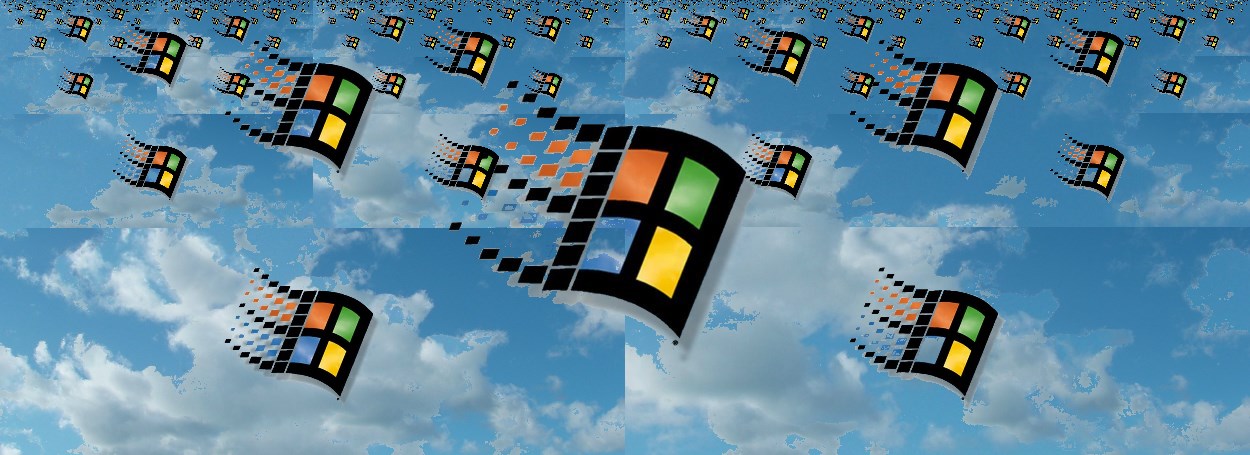
A security researcher has ported three leaked NSA exploits to work on all Windows versions released in the past 18 years, starting with Windows 2000.
The three exploits are EternalChampion, EternalRomance, and EternalSynergy; all three leaked last April by a hacking group known as The Shadow Brokers who claimed to have stolen the code from the NSA.
Researcher ports NSA exploits for old&new Windows versions
Several exploits and hacking tools were released in the April 2017 Shadow Brokers dump, the most famous being EternalBlue, the exploit used in the WannaCry, NotPetya, and Bad Rabbit ransomware outbreaks.
While EternalBlue became a favorite tool among malware authors, the Shadow Brokers dump also contained many lesser-known exploits. The reason many of these didn't become popular was that they only worked a small number of Windows versions, and did not support recent Windows distributions.
Now, RiskSense security researcher Sean Dillon (@zerosum0x0) has modified the source code for some of these lesser-known exploits so they would be able to work and run SYSTEM-level code on a wide variety of Windows OS versions.
The researcher has recently merged these modified versions of EternalChampion, EternalRomance, and EternalSynergy into the Metasploit Framework, an open-source penetration testing project.
Dillon has crafted his modified exploits to take advantage of the following vulnerabilities:
| CVE | Vulnerability | Exploited by |
|---|---|---|
| CVE-2017-0143 | Type confusion between WriteAndX and Transaction requests | EternalRomance EternalSynergy |
| CVE-2017-0146 | Race condition with Transaction requests | EternalChampion EternalSynergy |
"Instead of going for shellcode execution, it overwrites the SMB connection session structures to gain Admin/SYSTEM session," Dillon says. "The [Metasploit Framework] module is leaner (stripped down packet count/padding), checks extra named pipes, sprinkles randomness where possible, and has Metasploit's psexec DCERPC implementation bolted onto it."
Exploits work on both 32-bit and 64-bit architectures
Dillon says his modified exploits will work on both 32-bit and 64-bit architectures. He listed the following Windows versions as supported:
Windows 2000 Professional SP4 x86
Windows 2000 Advanced Server SP4 x86
Windows XP SP0 x86
Windows XP SP1 x86
Windows XP SP2 x86
Windows XP SP3 x86
Windows XP SP2 x64
Windows Server 2003 SP0 x86
Windows Server 2003 SP1 x86
Windows Server 2003 Enterprise SP 2 x86
Windows Server 2003 SP1 x64
Windows Server 2003 R2 SP1 x86
Windows Server 2003 R2 SP2 x86
Windows Vista Home Premium x86
Windows Vista x64
Windows Server 2008 SP1 x86
Windows Server 2008 x64
Windows 7 x86
Windows 7 Ultimate SP1 x86
Windows 7 Enterprise SP1 x86
Windows 7 SP0 x64
Windows 7 SP1 x64
Windows Server 2008 R2 x64
Windows Server 2008 R2 SP1 x64
Windows 8 x86
Windows 8 x64
Windows Server 2012 x64
Windows 8.1 Enterprise Evaluation 9600 x86
Windows 8.1 SP1 x86
Windows 8.1 x64
Windows 8.1 SP1 x64
Windows Server 2012 R2 x86
Windows Server 2012 R2 Standard 9600 x64
Windows Server 2012 R2 SP1 x64
Windows 10 Enterprise 10.10240 x86
Windows 10 Enterprise 10.10240 x64
Windows 10 10.10586 x86
Windows 10 10.10586 x64
Windows Server 2016 10.10586 x64
Windows 10 10.0.14393 x86
Windows 10 Enterprise Evaluation 10.14393 x64
Windows Server 2016 Data Center 10.14393 x64
Several security researchers have independently confirmed Dillon's exploit code works on these Windows versions.
exploit/windows/smb/ms17_010_psexec and auxiliary/admin/smb/ms17_010_command are now surely two of the most vigorously tested modules in all of @Metasploit. Thanks to everyone who helped! Should land to master branch soon... pic.twitter.com/NKy8nopF9p
— zǝɹosum0x0 (@zerosum0x0) February 2, 2018
Users who installed the patches detailed in Microsoft security bulletin MS17-010 are protected against these exploits.
Nothing new. NSA exploits ported in the past.
Part of Dillon's code uses a previous port of the EternalSynergy exploit created by security researcher Worawit Wang. Bleeping Computer previously covered in an article how Wang ported EternalSynergy to work on newer Windows versions.
In June 2017, Dillon also ported the EternalBlue exploit to work on Windows 10. Dillon also discovered the SMBLoris vulnerability.
Besides EternalBlue, the NotPetya and Bad Rabbit ransomware outbreaks also utilized the EternalRomance exploit that Dillon has recently ported to target a more broader spectrum of Windows versions.
Dillon also included the following disclaimed with his ports, wanting people to know the code was created to help companies identify vulnerable machines through pen-testing and develop mitigation strategies.
This software has been created purely for the purposes of academic research and for the development of effective defensive techniques, and is not intended to be used to attack systems except where explicitly authorized. Authors and project maintainers are not responsible or liable for misuse of the software. Use responsibly.


Post a Comment Community Rules
You need to login in order to post a comment
Not a member yet? Register Now